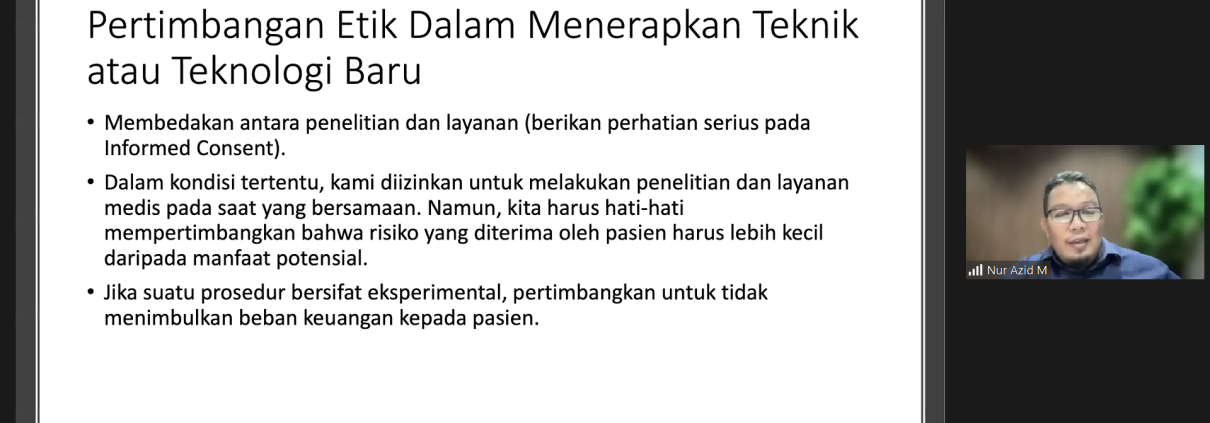Update on Stem Cell Therapy in Indonesia [Raboan Discussion Forum]
On Wednesday (14/12), the Center for Medical Bioethics and Humanities held the Raboan Discussion Forum. The topic discussed was Update on Stem Cell Therapy in Indonesia. The speaker for this discussion was dr. Nur Azid Mahardinat and it was moderated by dr. Galuh Dyah Fatmala.
Stem cells are cells that have not properly differentiated and can multiply and differentiate into other cells that are more specific in the human body. They are essential for the development, growth, and repair of cells or tissues in the body. Stem cell technology has sparked new enthusiasm in the development of therapies for various types of diseases. However, it is important to remember that for a therapeutic technique or procedure to become a standard therapy, it must meet all scientific requirements.
Stem Cell Services in the world:
- The policies in different countries vary.
- This means that patients who are in a country where the use of stem cells is banned will need to go to another country that allows it.
- For the patient’s country of origin, this results in a loss in terms of income.
- For the destination countries of the patients, the potential for exploitation must be watched out for as a direct impact of the medical services provided.
In Indonesia, over the last decade, there has been a tremendous increase in enthusiasm for self-therapy. Some hospitals even invite experts from other countries to provide these services in Indonesia. The government, through the health courts and BPOM, has responded to this development with various regulations.
Main goals of stem cell therapy:
- No patient choice (no new treatment options)
- Rejuvenation and anti-aging (healthy patients, who do not have life-threatening diseases)
Ethical questions:
- What ethical considerations should be considered when applying new techniques or technologies in healthcare?
The answer: A new medical technique/technology is more likely to be adopted if it is safer, more effective, faster, cheaper, and improves cosmetic outcomes. The physician-patient relationship should prioritize the quality of care provided to patients and their families.
- Is it ethical to use ‘no option’ patients in therapy-based services?
The answer: There are ethical concerns regarding the inefficient allocation of medical resources, the potential for patients to experience therapy that could burden the economy or have side effects, and the possibility of patients being exploited for the benefit of certain parties.
To prevent unethical practices such as experimental procedures, considerations for clinical use and additional guidelines have been developed, including discussions on recipient selection and addressing the concerns raised in this context.



